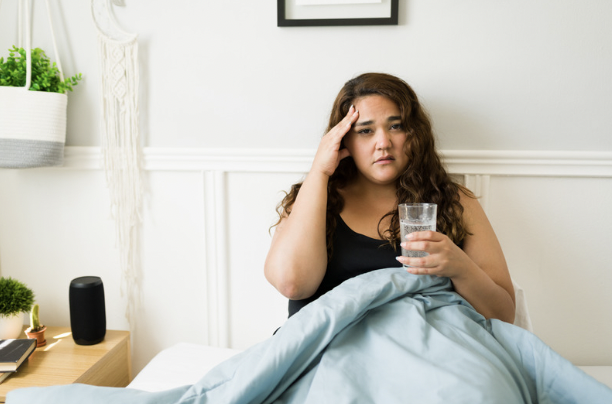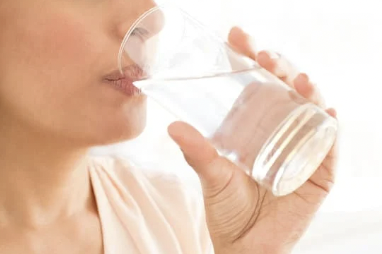
Layanan IV Hangover di Bali: Kapan Cocok dan Kapan Harus Periksa Dulu
Bangun dengan hangover parah di Bali? Matahari Januari 2026 baru saja mengintip di balik rimbunnya pepohonan di villa Anda di
While enjoying the island’s famous cocktails and beach parties, it’s essential to be aware of the risks associated with excessive alcohol consumption, particularly dehydration. Below we will explore the causes and symptoms of alcohol dehydration, how IV drip therapy can help, and natural remedies to prevent and alleviate its effects.
Alcohol is a diuretic, meaning it increases urine production and leads to a loss of fluids and electrolytes from the body. When you consume alcohol, your body prioritizes metabolizing the alcohol over maintaining optimal hydration levels, leading to dehydration. Factors such as hot weather, physical activity, and lack of proper hydration can exacerbate the dehydrating effects of alcohol.

If left untreated, severe alcohol dehydration can lead to complications such as heat exhaustion, kidney problems, and even seizures. It’s essential to recognize the signs and symptoms of alcohol dehydration and take prompt action to prevent further deterioration of your health.
One of the most effective ways to treat alcohol dehydration is through IV drip therapy. IV drips deliver essential fluids, electrolytes, and vitamins directly into your bloodstream, providing rapid hydration and restoring the balance of nutrients in your body.
At Trishnanda Care Centre, we offer specialized IV drip treatments tailored to combat alcohol dehydration. Our “Hangover Drip” contains a blend of saline solution, electrolytes, and vitamins such as B-complex and vitamin C to help alleviate symptoms and support your body’s recovery process.
The benefits of IV drip therapy for alcohol dehydration include:

In addition to IV drip therapy, there are several natural remedies you can use to prevent and alleviate the effects of alcohol dehydration:
Prevention is key when it comes to avoiding the unpleasant effects of alcohol dehydration. Here are some tips to keep in mind:
IV drip therapy, offered by trusted providers like Trishnanda Care Centre, can provide rapid relief and support your body’s recovery process. Combining IV drip treatments with natural remedies and preventive measures can help you stay hydrated, healthy, and ready to make the most of your time in paradise.
Remember, moderation and self-care are key to fully enjoying your Bali experience. If you do find yourself in need of alcohol dehydration treatment, know that help is available, and Trishnanda Care Centre is here to support you on your journey to optimal health and well-being. Prioritize your health, listen to your body, and seek professional assistance when needed to ensure a safe and enjoyable stay in Bali.
IV drip treatments typically start to alleviate symptoms within 30 minutes to an hour of starting the infusion. However, the duration of the treatment and the time it takes to feel the full effects may vary depending on the severity of your dehydration and the specific composition of your IV drip.
It is not recommended to consume alcohol immediately after receiving an IV drip treatment for dehydration. Your body needs time to fully rehydrate and recover. It’s best to wait at least 24 hours before consuming alcohol again and to do so in moderation, while continuing to prioritize hydration with water and electrolyte-rich beverages.
Side effects of IV drip therapy for alcohol dehydration are generally mild and may include temporary discomfort at the injection site, cold sensation in the arm during the infusion, and a slight taste of vitamins in the mouth. More serious side effects are rare but may include allergic reactions or infections. The medical professionals at Trishnanda Care Centre are trained to minimize risks and address any concerns you may have.
While IV drip therapy can be an effective treatment for alcohol dehydration, it is not recommended to use it as a preventive measure before drinking alcohol. The best way to prevent alcohol dehydration is to practice moderation, alternate between alcoholic beverages and water, and consume electrolyte-rich foods and drinks.
The frequency of IV drip treatments for alcohol dehydration depends on your individual needs and health status. Trishnanda Care Centre’s medical professionals will assess your condition and provide personalized recommendations. In general, it is not advisable to rely on IV drip therapy as a regular substitute for maintaining proper hydration and healthy drinking habits.

Bangun dengan hangover parah di Bali? Matahari Januari 2026 baru saja mengintip di balik rimbunnya pepohonan di villa Anda di

Kapan waktu terbaik untuk melakukan tes NS1? Tes NS1 (Dengue Early Antigen) paling akurat dilakukan dalam 1 hingga 3 hari
Contact Our Doctor Now